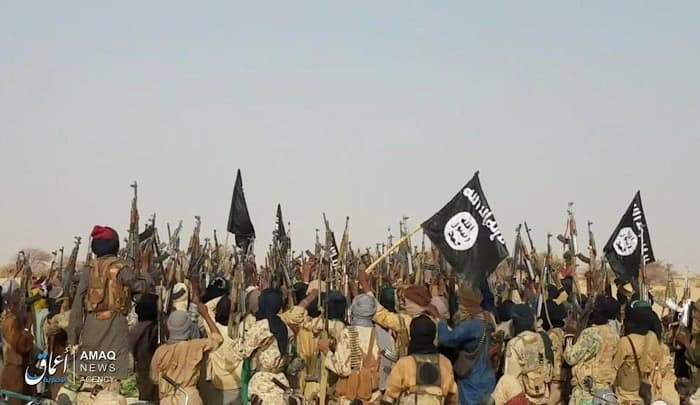Pakistan establishing diplomatic missions in Africa amid ‘rising radical Islamic terrorism’

Pakistan has been playing a double game and it is doing it again. The country has long been known as a sponsor of jihad terror activity; its new alliances in Africa are a cause for concern, given recent trends in many African countries.
Ever since the fall of the Islamic State in Syria and Iraq, the group’s efforts to establish a caliphate have centered upon Africa, including the Sahel region. “The objective of most of these radical Islamic outfits is to establish Islamic regimes across the world.” Pakistan is in sync with such a vision.
All of this is bad news for India, as Pakistan continues its aggression toward its neighbour.
The Pakistan Army has attempted to invade Jammu & Kashmir four times in the last seven decades and has been waging a proxy war against India for the last three decades. Since August last year, when India revoked special status of J&K state and brought it directly under the control of the central government, the Imran Khan government has been seeking support from the 57-member OIC, the biggest bloc of Islamic countries in the world.
Meanwhile, Pakistan’s Prime Minister Imran Khan is cozying up to Turkey’s President Recep Tayyip Erdogan. Erdogan, of course, has his own ambitions of a revived Ottoman Empire, as it competes to replace “Saudi Arabia as the leader of Sunni Islamic nations.”
“Pakistan establishing diplomatic missions in African countries amid rising radical Islamic terrorism in Africa,” by Manish Shukla, Zee News, August 9, 2020:
Pakistan, a country that is known for being the epicentre of international terrorism is now involved in establishing diplomatic relations and setting up its diplomatic missions in the African countries amid rising radical Islamic terrorism in the continent.As per the Indian security officials who are aware of the developments, Pakistan has been establishing its diplomatic relations and missions in the African continent at an accelerated pace since 2019.The officials stated that this factor, when seen with Pakistan’s association with radical Islamic terror groups, can be a cause of concern for India and by covertly supporting the terror groups and overtly strengthening diplomatic relations with these countries, Pakistan can place itself in a powerful position.The instability in Africa is going to impact the whole world and the rise of radical Islamic terrorism in the continent will result in New Delhi having to reconfigure its positions on Africa-related issues.India has been contributing to the United Nations (UN) peacekeeping missions in African countries for a long time and has also either set-up or run military academies in countries like Ethiopia, Nigeria, and Ghana.With an increase in the number of terror-related activities in these African regions, India’s role in counter-terrorism building capacity in Africa will grow further.The objective of most of these radical Islamic outfits is to establish Islamic regimes across the world. India might become a centre of the transaction of workforce and resources for these outfits.In countries going through sheer anarchy and growing terrorism, like Somalia and those located in the Sahel region, it is very likely that the terrorist outfits might gain a significant amount of control on governance — if not neutralized.These countries might become similar to Afghanistan of the 1990s, ruled by the Taliban.Notably, the terrorists are also fighting within themselves in Africa and are indulged in a war due to inter-organization revelries and shifting loyalties.The Islamic State (IS) spread its wings in most parts of Africa by ensuring the defection of terrorists and outfits affiliated to Al-Qaeda (AQ) to its side. In some cases, split groups from AQ affiliates moved to form IS affiliates, despite a large part of their outfits remaining aligned to the AQ.In the Sahel region, Jamaat Nusrat al-Islam wal-Muslimin (JNIM) and Islamic State in Greater Sahara (ISGS), the affiliates of AQ and IS, are currently indulged in a fight….Photo and Link: https://www.jihadwatch.org/2020/08/pakistan-establishing-diplomatic-missions-in-africa-amid-rising-radical-islamic-terrorism




